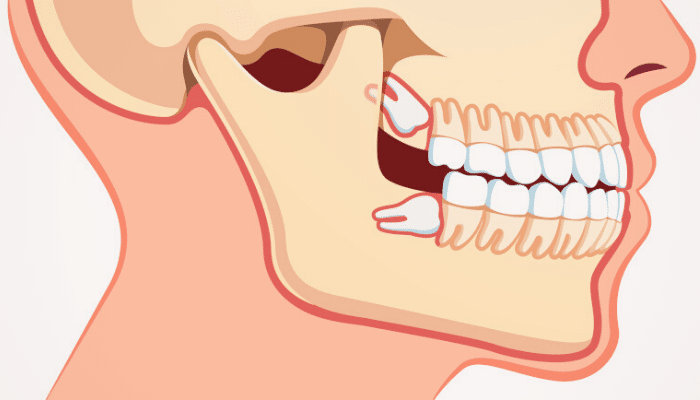Impacted Wisdom Teeth – What is the purpose of wisdom teeth? Wisdom teeth, according to scientists, evolved as an evolutionary response to consuming raw meats, vegetables, and roots. Some people develop their third set of molars between 17 and 21, sometimes known as the wisdom years. They are not always functional, and they can clog your mouth or cause you problems in the future. Many of the impacted wisdom teeth symptoms listed below are related to wisdom teeth that are tooth impaction or those that do not have enough space for emerging naturally. Some of these symptoms can also be associated with other oral problems. If you are facing any of the symptoms listed below, make an appointment with a dentist right away.
Irritation and pain:
Impacted Wisdom teeth pain can cause aches and pains as they emerge. Speak to your dentist for an examination and x-ray if you are suffering pain or discomfort. They can tell if the pain is coming from the wisdom teeth or anything else. According to your dentist, extraction is not always the best option, and pain may subside over time, and no extraction will be necessary.
Teeth are not straight:
The wisdom teeth might cause the other teeth to shift and move over if they grow in incorrectly. They may potentially cause damage to the neighboring teeth. Other teeth may not be harmed as a result of extraction. There are several ideas as to why wisdom teeth emerge crooked and sideways. Your jaws are supposed to be too small to accommodate a third molar, which then bumps into the others, forcing it to develop sideways. Before starting orthodontic treatment, you should consider any impacted wisdom teeth removal to allow more room to adjust your misalignments.
Difficulty in Eating:
If you suffer pain while eating, then you need to remove your wisdom teeth. Food may become lodged between the gums and the tops of the teeth. If you cannot get to the back of your mouth and brush well enough, this could cause a lot of difficulties. The easiest strategy to deal with this condition is to consult with a dentist to determine the best things to use. If the problem cannot be determined, removal may be the only best option.
Sinus Problems:
Sinus difficulties can be caused by wisdom teeth. When teeth in the upper jaw grow, this causes complications. When teeth and roots develop, they can push and rub against the sinuses, causing them to become irritated. Wisdom teeth can cause sinus pain, headaches, pressure, and congestion, even though this is rare.
When should you remove it?
- It is hard to clean partially erupted wisdom teeth correctly if they are uncomfortable or bothersome. Also, if a buildup of food particles and dental plaque produces gum infection surrounding the tooth, it will be extracted unless it causes damage to neighboring teeth or the jaw bone.
- If the person has a current medical issue that puts them at a higher risk of complications, an oral surgeon will need to see them. Dentists are unable to determine which wisdom teeth will cause issues.
Finally, visiting your dentist regularly, regardless of the state of your teeth, can help you avoid uncomfortable situations in the future. Maintaining healthy dental care and a balanced diet will help to keep your mouth healthy and pain-free.
For more information about Impacted Wisdom Teeth or any other dental procedures, as well as other dental problems, contact Vistadent Orthodontic Speciality Clinic, at 040-23388111 or +91 9866572482 or at info@vistadent.net or visit our website at http://vistadent.net/.

